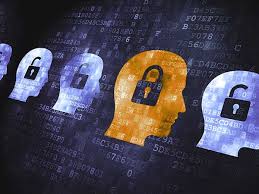Source: youthkiawaaz.com
Like any other country in the world, India, too, has its own socio-economic and governance problems. Some issues like economic slowdown, unemployment, deteriorating health care, education quality, and communalism have been worrying India since before independence.
These problems still persist and have held India tightly in their jaws. But, besides these conventional challenges which India is yet to resolve, the modern world has brought new problems for India to be tackled. The dynamic nature of the world economy, the disrupting innovation, and dominance of the market have brought India to the crossroads with a complex web of confrontations which, if not unraveled, may cause unprecedented harm. We will discuss three such modern enigmas that India is currently facing:
- Public Data Mining And Privacy Rights: Privacy of Indian citizens is at the risk amidst the digital revolution, and the collection of personal data by the government and corporate. The potential of big data in artificial intelligence, product marketing, etc. has made it valuable like oil.Today, we enter our personal information, details of daily activities a thousand times a day in the virtual world. Apps like WhatsApp, Facebook have been found guilty of breaching the privacy of users many-a-times in the recent past, the latest case being the Pegasus case. Governments themselves sit on the biometric data of citizens without really having any data security framework. This data can be misused for crime, targeted advertising, terrorist activities or political propaganda even without the consent of citizens. The lackadaisical approach of the government over these issues makes it more worrisome. Despite the Supreme Court’s landmark judgment on rights to privacy (Puttaswamy vs. the Union of India) or the Justice Srikrishna committee’s report on data protection law, India has not yet taken any concrete steps over it.
- The 4th Industrial Revolution (IR): What a fancy word ‘revolution’ is, which indicates positive and transformative change. The fourth IR has introduced robots with human intelligence, IoT, higher productivity in factories, etc. Today’s strenuous work of switching on TV can be accomplished by Alexa, the AC in our homes can be controlled from tthe outside, and humans are being freed from daily mundane work.But, besides this, the 4th IR is bringing many disruptive changes, that will be difficult to handle if remedial actions are delayed. The prime concern is the employment crisis. Manual jobs like computer operators, parts assembling in factories, and many more will be automated in the coming decades. China has already built a robot journalist to read the news in the studio. We can’t even imagine the level of crisis the economy may go through in this transition. Experts are speculating the possible consequences in their own way without any surety. The World Economic Forum (WEF) has already given its estimates on job loss in India due to automation.
- Cybersecurity: It’s very common to read about online frauds done by hacking into bank accounts, hacking of educational institutes’ websites, the way card details of several account holders are leaked. People can’t even imagine that only by clicking on a link in a text message can pauperise them. We are surrounded by invisible thieves who are keeping an eye on our activities and are ready to loot us. Cyber terrorism has taken a great toll on the government’s capability to mitigate internal security risks. Hawala transactions are carried out in one click by overground groups, propaganda is spread out by posting a video or enticing lines/posts on social media. Any critical information possessed by several agencies regulated by the government is prone to leakage. The cyberspace is being misused at a gross level. We are still not prepared to tackle this challenge.
While we are still struggling with our conventional problems, these modern-day challenges have added to India’s worry. If we talk about the one-line solutions to these issues, these can be:
- India should frame a data protection law having unambiguous provisions and detailed responsibilities of every stakeholder like corporate and citizens to make a balance between the use of data for public welfare and privacy rights as soon as possible.
- Niti Ayog has already prepared a policy layout on artificial intelligence (AI). The foremost need to tackle the 4th IR is the re-skilling of the workforce. It has to be corroborated by aligning the education curriculum to modern industrial needs, for example, starting professional courses on machine learning (ML), AI, etc. via an industry-academia collaboration. However, similar steps have already been taken by the Central Board of Secondary Education (CBSE), which introduced a chapter on AI in the school syllabus and IIT Hyderabad is starting a B.tech course on AI.
- Cybersecurity has to be ensured by the participation of all stakeholders like government, citizens, corporate, etc., a robust institutional mechanism should be established with capacity building of investigating teams, police reforms, etc. New technologies must be leveraged by the agencies like ED, NIA in investigations and evidence collection. Overall, I feel the government has to counter the misuse of cyberspace by cyber technologies itself.
India is on the path of sustainable development but before achieving that, it has to cross many new obstacles. So, it is imperative to be visionary and recognise the new challenges and possible disruptions from them in the future and be prepared for them.
